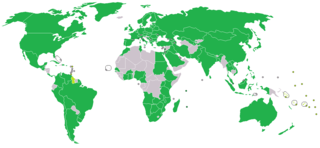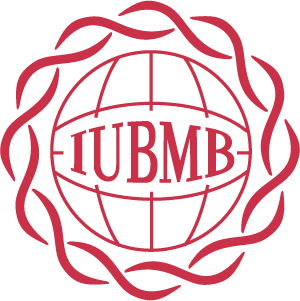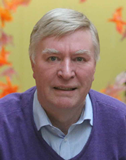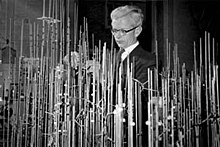
The International Mathematical Union (IMU) is an international organization devoted to international cooperation in the field of mathematics across the world. It is a member of the International Science Council (ISC) and supports the International Congress of Mathematicians (ICM). Its members are national mathematics organizations from more than 80 countries.

The International Council for Science was an international non-governmental organization devoted to international cooperation in the advancement of science. Its members were national scientific bodies and international scientific unions.

The International Union of Pure and Applied Chemistry is an international federation of National Adhering Organizations working for the advancement of the chemical sciences, especially by developing nomenclature and terminology. It is a member of the International Science Council (ISC). IUPAC is registered in Zürich, Switzerland, and the administrative office, known as the "IUPAC Secretariat", is in Research Triangle Park, North Carolina, United States. IUPAC's executive director heads this administrative office, currently Greta Heydenrych.

The International Union of Pure and Applied Physics is an international non-governmental organization whose mission is to assist in the worldwide development of physics, to foster international cooperation in physics, and to help in the application of physics toward solving problems of concern to humanity. It was established in 1922 and the first General Assembly was held in 1923 in Paris. The Union is domiciled in Geneva, Switzerland.

The International Union of Biological Sciences is a non-profit organization and non-governmental organization founded in 1919 that promotes biological sciences internationally. As a scientific umbrella organization, it was a founding member of the International Council for Science (ICSU).
The International Commission for Optics (ICO) was created in 1947 with the objective to contribute, on an international basis, to the progress and dissemination of the science of optics and photonics and their applications. It emphasises the unity of the crossdisciplinary field of optics.

The International Union of Biochemistry and Molecular Biology (IUBMB) is an international non-governmental organisation concerned with biochemistry and molecular biology. Formed in 1955 as the International Union of Biochemistry (IUB), the union has presently 79 member countries and regions. The Union is devoted to promoting research and education in biochemistry and molecular biology throughout the world, and gives particular attention to localities where the subject is still in its early development.
The Pacific Science Association (PSA) is a regional, non-governmental, scholarly organization that seeks to advance science and technology in support of sustainable development in the Pacific Rim. It was founded in 1920 and its secretariat is based at the Bishop Museum in Honolulu, United States.
The International Union of Basic and Clinical Pharmacology (IUPHAR) is a voluntary, non-profit association representing the interests of scientists in pharmacology-related fields to facilitate Better Medicines through Global Education and Research around the world.
The International Commission on Mathematical Instruction (ICMI) is a commission of the International Mathematical Union and is an internationally acting organization focussing on mathematics education. ICMI was founded in 1908 at the International Congress of Mathematicians (ICM) in Rome and aims to improve teaching standards around the world, through programs, workshops and initiatives and publications. It aims to work a great deal with developing countries, to increase teaching standards and education which can improve life quality and aid the country.

David Anthony Dougall Parry is a New Zealand biophysicist known for his work within the area of ultrastructure scleroprotein analysis. He is the former President of the International Union for Pure and Applied Biophysics and former Vice President of the International Council for Science (ICSU).

Mamannamana Vijayan was an Indian structural biologist.
The purpose of the International Commission for Acoustics (ICA) is to promote international development and collaboration in all fields of acoustics including research, development, education, and standardisation.

The International Union of Psychological Science, abbreviated IUPsyS, is the global umbrella organization for psychology.
The British Biophysical Society is a scientific society that exists to encourage and disseminate developments in the application of physical and chemical concepts to biological systems. It was founded in 1960 following a report from a Working Party on Biophysics and Biophysical Chemistry initiated by the Council of the then Faraday Society of London. The current Chair is Olwyn Byron.

The European Biophysical Societies' Association is a non-profit making organisation, to foster the exchange of scientific information among European biophysicists and biophysicists in general.
Life Sciences Switzerland (LS2) is the Swiss federation of scientific societies for life sciences. It was formerly known as the Union of the Swiss Societies for Experimental Biology (USGEB). It was founded in 1969, with the founding meeting taking place in Bern, Switzerland. At the founding, four societies, Swiss Society for Physiology, Swiss Society for Biochemistry, Swiss Society for Pharmacology and Swiss Society for Cell & Molecular Biology comprised the original societies.

Anthony Watts is a British biochemist and Professor of Biochemistry at the University of Oxford and C W Maplethorpe Fellow in Biological Sciences and tutor at St. Hugh's College, Oxford. He is a fellow of the Royal Chemical Society, the Institute of Physics, Royal Society of Biology and Biophysical Society. He was managing director of the European Biophysics Journal, and is a co-opted member of the European Biophysical Societies' Association (EBSA), chair of the British Biophysical Society and chair of the Scientific Committee for the IUPAB/EBSA/BBS/IoP Biophysics congress, 2017. He was President of EBSA (2017-2019) and elected President-elect of IUPAB in 2021.
Ponnuraj Karthe is an Indian structural biologist and a professor and the head of the Department of Crystallography and Biophysics of the University of Madras. He is known for his research in the fields of structural biology and drug designing. His studies have been documented by way of a number of articles and Google Scholar, an online repository of scientific articles has listed 46 of them. Besides, he has contributed chapters to books edited by others and has delivered invited speeches at many seminars which include the Workshop on Advances in Computer Aided Drug Design held in August 2010 at the University of Madras. He was a member of the national organizing committee of the Annual Conference of Indian Biophysical Society - Molecular Architecture, Dynamics and Assem, organized by Saha Institute of Nuclear Physics and serves as a member of the national committee of the International Union for Pure and Applied Biophysics (IUPAB) as well as the executive council of the Bioinformatics and Drug Discovery Society (BIDDS), a non governmental organization promoting dissemination of knowledge in the fields of bioinformatics, biological sciences and other life sciences. The Department of Biotechnology of the Government of India awarded him the National Bioscience Award for Career Development, one of the highest Indian science awards, for his contributions to biosciences, in 2010.
The International Science Council (ISC) is an international non-governmental organization that unites scientific bodies at various levels across the social and natural sciences. The ISC was formed with its inaugural general assembly on 4 July 2018 by the merger of the former International Council for Science (ICSU) and the International Social Science Council (ISSC), making it one of the largest organisations of this type.












